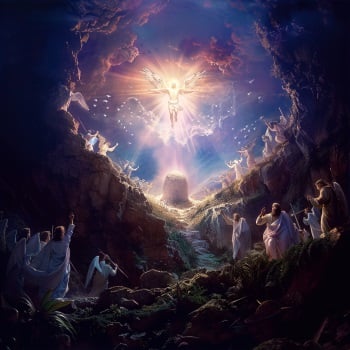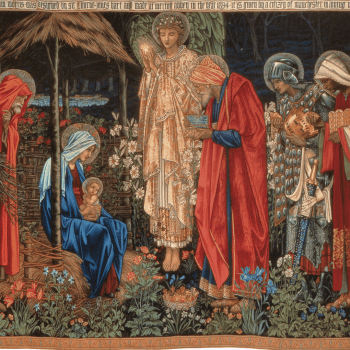The Gospel of John doesn’t really deal in miracles, per se, but rather signs. The miraculous things that Jesus does–healings, raising of the dead, turning water into wine, feeding the hungry–come to his people as messages from the Father. Look! See! Understand! As signs, they can be received with gratitude for what they are–good wine, new sight, copious amounts of bread–but they’re meant to lead to more. They’re meant to lead to vision. Thanksgiving is just the beginning, the gateway.
In Letters to Malcolm, C.S. Lewis tells us of his spiritual practice: “I have tried…to make every pleasure into a channel of adoration. I don’t mean simply by giving thanks for it. One must of course give thanks, but I mean something different.”
We in this country are, perhaps, all at some point along this spectrum of giving thanks for the blessings we experience. We are deep into pleasures: traveling, cleaning, shopping (getting that last can of pumpkin), chopping, stirring, basting, baking, decorating, serving, feasting, groaning, washing dishes, napping, playing games, watching football, streaming movies, doing puzzles, telling old family stories, eating pie. And thus may be the sum total of the four-day holiday that we call Thanksgiving. That and the scale on Monday morning.
We who are Christ’s, however, are invited to read all the goodnesses of our lives as signs. Look! Give thanks! And then, launch yourself past Thanksgiving to Adoration. Lewis echoes Augustine who talks in The Trinity about moving from thoughts of good things or good people to the very idea of goodness. Goodness itself. The deep reality behind the blessings of this life. And, Augustine says, this essence of goodness is God.
“We know we are being touched by a finger of that right hand at which there are pleasures for evermore. There need be no question of thanks or praise as a separate event, something done afterwards. To experience the tiny theophany is itself to adore. Gratitude exclaims, very properly, ‘How good of God to give me this.’ Adoration says, ‘What must be the quality of that Being whose far-off and momentary coruscations [bright glimmers, brilliant rays] are like this!’ One’s mind runs back up the sunbeam to the sun.”
As with most American holidays, Thanksgiving has become a fully secular holiday, requiring no spiritual context whatsoever. The devout nonbeliever can still be grateful for the good things of life. But those of us who are called by the name of Christ are invited to read the signs, to travel the sunbeams of these many gifts back up to the sun. And there, we adore. There we embrace the One who is Goodness itself, the One who is Joy, the One who is Beloved. He is worthy, he is worthy, he is worthy.
This Thanksgiving weekend, may you experience at least one tiny theophany.


















